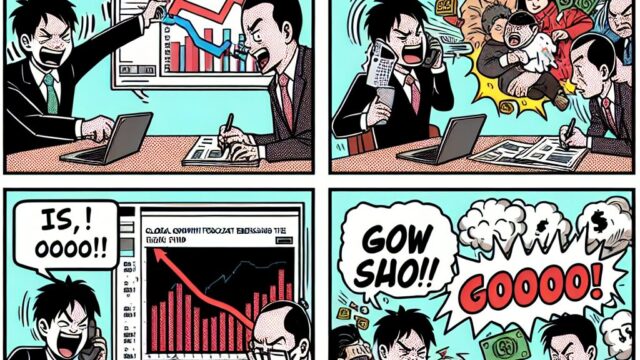🎧 Audio
📖 Script
Today, we are looking at some important movements in the Australian financial markets. The Australian dollar, often referred to as the “Aussie dollar,” made headlines by reaching its highest value in eight months. It climbed to 65.8 US cents, marking a significant increase. This rise in value happened after the currency went through a key resistance level, which is a point where its price struggles to go higher or lower. However, after reaching this peak, the value of the Aussie dollar slightly decreased.
Meanwhile, the Australian Securities Exchange, or ASX, experienced a decline. The ASX is the main stock market in Australia where shares of publicly listed companies are traded. A slip in the ASX means that the prices of many stocks on the exchange decreased. Changes in stock prices can be influenced by a variety of factors including economic reports, global market trends, and changes in currency values like what we saw with the Aussie dollar.
These market fluctuations are important because they affect the economy in various ways. A stronger Aussie dollar can make Australian exports more expensive and less competitive abroad, but it can also make imports cheaper for Australian consumers. On the other hand, a weaker currency can help boost exports but make imports more costly. For the ASX, a decline can signal a lack of investor confidence or external economic pressures.
Our business reporters at ABC News have been keeping a close eye on these developments. They provide insights and analysis on how these changes might impact businesses and the broader economy. Reading their live markets blog can help you stay informed about what’s happening in the financial world and how it might affect your investments or financial plans.
In summary, today’s market activity with the Aussie dollar and the ASX highlights the dynamic nature of financial markets. Keeping up with such changes is crucial for anyone interested in economics or investing.
📝 Vocabulary
- currency : the system of money used in a particular country.
- resistance level : a price point where an asset experiences difficulty moving higher or lower.
- stock market : a place where shares of companies are bought and sold.
- export : goods or services sent from one country to another for sale.
- investor : a person or organization that puts money into financial ventures with the expectation of earning a profit.
❓ Listening Questions
- What was the Australian dollar’s highest value in recent months?
- What does a slip in the ASX indicate?
- How can changes in the Aussie dollar’s value affect exports?
📚 Reading Questions
- What is a resistance level in financial terms?
- How does a stronger Aussie dollar impact imports?
- Why is it important to follow market changes according to the script?
解答と解説(クリックで表示)
### Answers
1. 65.8 US cents.
2. It indicates a decline in stock prices.
3. It can make exports more expensive and less competitive abroad.
### Grammar Point
**Past Simple Tense** – “The Australian dollar, often referred to as the “Aussie dollar,” made headlines by reaching its highest value in eight months.”
### 日本語での経済ニュース解説
オーストラリアドルの上昇とASXの下落は、オーストラリア経済および国際市場に影響を及ぼします。強い通貨は輸出品を高価にし競争力を低下させる一方、輸入品を安くすることで消費者に利点をもたらします。市場の動きに注目することは、投資戦略や経済理解において重要です。
“`
Source: https://www.abc.net.au/news/2025-07-01/asx-markets-business-live-news-july1-2025/105479978







